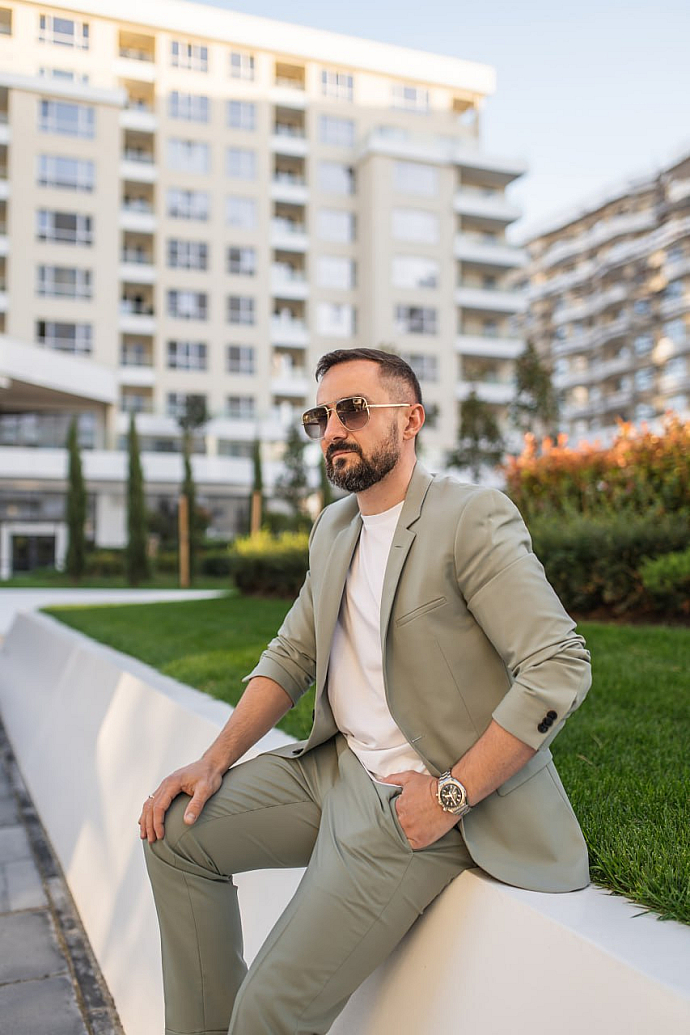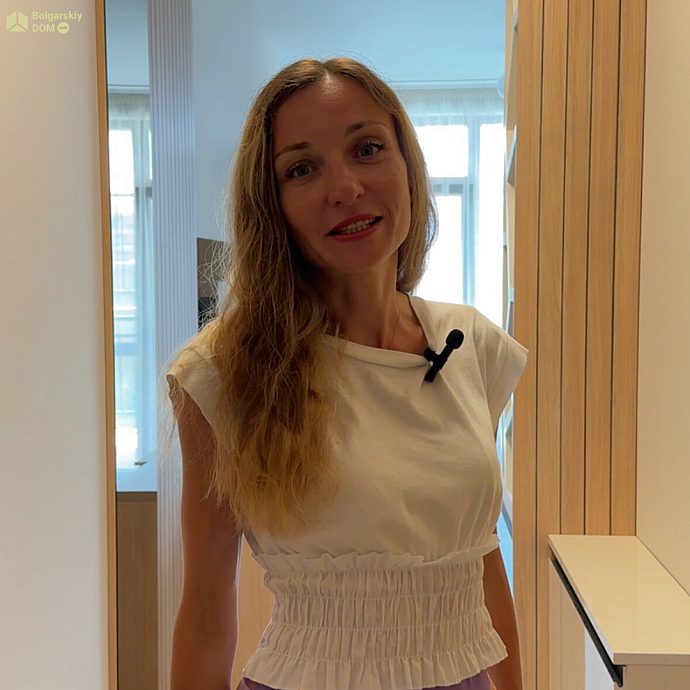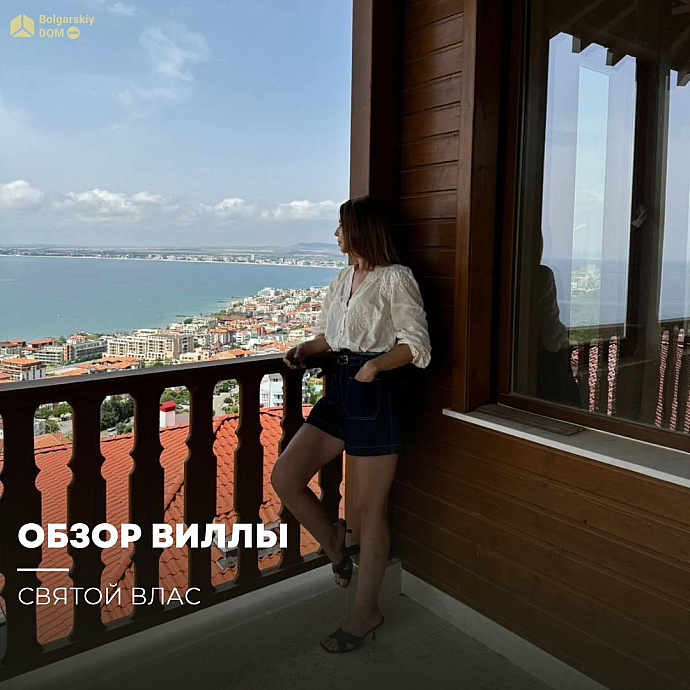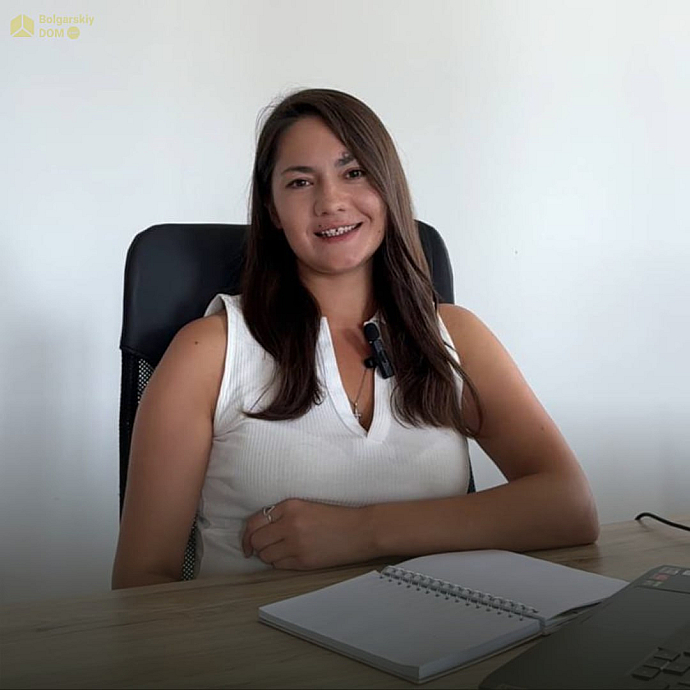For investors from the Netherlands, the Bulgarian real estate market presents a unique combination of factors. It offers not only a substantial price difference compared to Amsterdam but also strong growth potential in anticipation of the country's entry into the Eurozone. This guide is your strategic analysis for making an informed investment decision.
The success of this investment for a Dutch citizen depends on two key points:
Selecting an independent legal representative in Bulgaria to conduct a thorough "due diligence" check on the asset's legal integrity.
Proactive tax planning in the Netherlands to optimize taxation, particularly for the correct application of the "exemption with progression" mechanism.
A key financial incentive, which we will analyze in detail, is the possibility of complete exemption from capital gains tax. If you own Bulgarian real estate for more than three years, any profit from its sale will not be taxed in Bulgaria. Combined with the Double Taxation Agreement, or DTA, this creates an exceptional opportunity for capital accumulation without tax liabilities in either country.
| Section of this Guide | Key Benefit for You (as a Dutch Citizen) |
|---|---|
| You'll understand the importance of choosing an agent with a "Dutch mentality." | |
| You'll see the price gap with Amsterdam and an overview of regions: Sofia, Bansko, the Coast. | |
| You'll learn how income growth and the expected Euro adoption are affecting prices. | |
| You'll understand the advantages of buying as an EU citizen and the registration rules. | |
| You'll get a breakdown of transaction costs and an analysis of verification complexities. | |
| You'll learn about the difficulties for a non-resident to get a mortgage with income from the Netherlands. | |
| You'll understand the main tax trap in the Netherlands (Box 3) and the benefit in Bulgaria (0% CGT). | |
| You'll see the practical aspects of expat life, including healthcare and infrastructure. |
The Cultural Aspect of the Deal
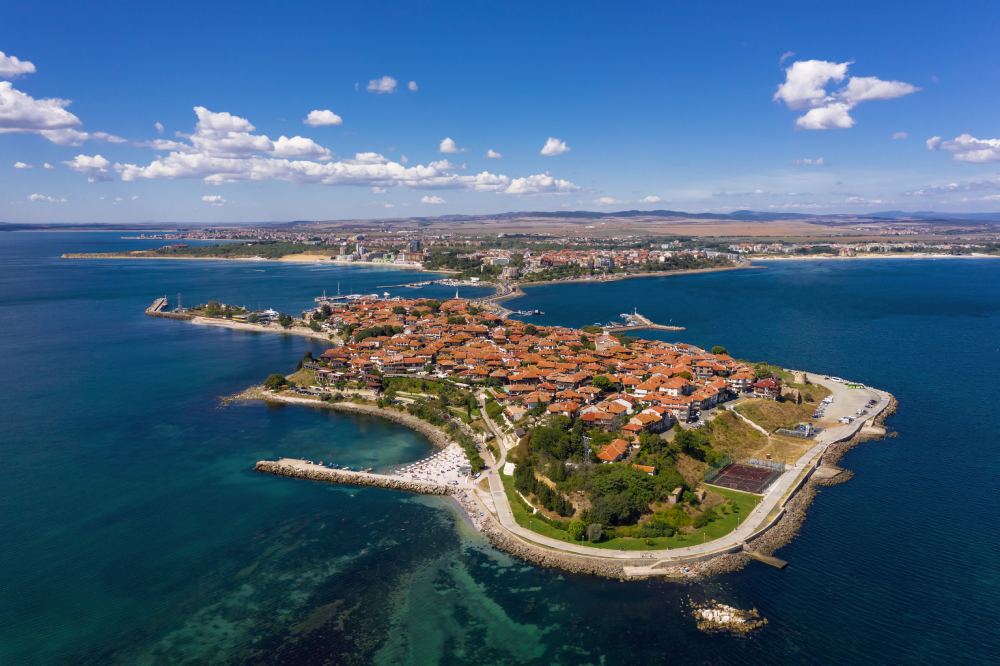
While the financial appeal is obvious, an analysis of buyer experiences reveals a critical complexity: operational risk. For a Dutch investor accustomed to clarity and punctuality, the cultural gap in business practices can be a problem. Expectations for speed, transparency, and reliability, common in Northern Europe, can conflict with local business norms, creating friction and difficulties for the transaction.
This difference is strategically important. For a Dutch buyer, the choice of intermediary is paramount. At BolgarskiyDom, we recognize this gap in the market. We structure our process based on the principles you value: punctuality, absolute transparency at every stage, and fulfilling commitments.
We use the "Dutch mentality" in our work not as a marketing slogan, but as a key standard of service. When choosing a realtor, a Dutch buyer should prioritize not those who offer the lowest commission, but those who can demonstrate a deep understanding and application of Northern European service standards.
Market and Price Analysis

These are Sunny Beach, Varna, and Burgas. They are the most in-demand among foreign buyers. This segment is characterized by a very low entry threshold. Studios of 37-40 sq. m are offered in complexes with infrastructure, such as River Park or Villa Sofia, at prices from €21,800 to €22,500.
Sofia represents a completely different market. It is the country's economic center. Prices here are significantly higher: a one-bedroom apartment can cost from €180,000 to €200,000, and the monthly rent for a similar property is €600-€800.
These are Bansko, Veliko Tarnovo, and Gabrovo. This segment offers the lowest prices and mainly attracts emigrants. Offers include apartments in ski villages like Bansko, priced from €20,000, and fully renovated rural houses with land plots from €30,000.
- Bulgaria (Sofia): New build prices in Sofia have risen from €715/sq.m in 2015 to €1,840–€1,900/sq.m in 2024.
- Netherlands (Amsterdam): The average price in Amsterdam as of 2024 is around €7,850/sq.m.
A direct comparison shows that the Amsterdam real estate market is currently, in 2024–2025, about 4 to 4.5 times more expensive than the Bulgarian capital per square meter.
Market Comparison 2024-2025
The following table visualizes the stark contrast in cost and affordability between the Netherlands and key segments of the Bulgarian market.
| Metric | Amsterdam (Netherlands) | Sofia (Capital BG) | Coast (Sunny Beach) | Ski Resort (Bansko) |
|---|---|---|---|---|
|
Average price per sq.m
|
€7,850
|
€1,840 - €1,900
|
~€600
|
~€1,000
|
|
Price of 1-bed apartment
|
~€400,000+
|
€180,000 - €200,000
|
N/A
|
N/A
|
|
Price of a studio
|
N/A
|
N/A
|
€21,800 - €22,500
|
from €20,000
|
|
Affordability Ratio
|
15.4
|
8.0+
|
N/A
|
N/A
|
Legal Rights for the Dutch

The legal framework for Dutch citizens, as for all citizens of EU member states, is a simple and fundamental advantage.
EU Citizen Advantage. EU citizens can acquire real estate, including land plots, in Bulgaria on the exact same terms as Bulgarian residents. For purchasing a house with a plot of land, the only necessary document is a passport.
This is a key difference from non-EU citizens. As a rule, foreigners not from the EU or EEA "cannot buy land" in Bulgaria. If such a citizen wishes to buy a house with a garden, they must register a Bulgarian legal entity, which will then own the land.
The EU advantage is not just a convenience; it is a fundamental enhancement of the asset's value and liquidity. The Dutch owner holds a "clean" asset as an individual. This eliminates the administrative and financial costs associated with creating and maintaining a legal entity.
Residency Requirements. Residency procedures for EU citizens are also simplified but require compliance with certain rules.
- Stays up to 90 days: EU citizens can stay in Bulgaria for up to 90 days with only a valid passport or identity card.
- Stays over 90 days: If an EU or EEA citizen intends to stay in Bulgaria for more than 90 days, they are obligated to register with the "Migration" Directorate of the Ministry of Internal Affairs to obtain a residence certificate.
Although this registration is often called a "formality," practical experience shows it can be a bureaucratic process. For example, one Danish citizen faced an immigration problem: registration required a notarized lease agreement, but the landlord was abroad. It is recommended that a clause be included in the purchase contract obligating the seller to provide all necessary notarized documents for the Migration Service immediately upon closing the deal.
Costs and Purchase Process

Dutch buyers, accustomed to the term Kosten Koper, should be aware that associated purchasing costs in Bulgaria can be significant.
Transaction Costs. An analysis of examples for a €200,000 property shows the following cost structure:
- Broker's commission, or Makelaarskosten: Usually around 4% of the purchase price. In this example, €8,000.
- Property transfer tax, or Overdrachtsbelasting: This local tax varies, typically ranging from 2% to 4%. The example uses a 3% rate, which is €6,000.
- Notary fees, or Notariskosten: Rates vary from 0.1% to 1.5%. The example uses 1%, which is €2,000.
- Legal fees, or Advocaatkosten: Often a fixed rate. The example lists €1,500.
The total transaction costs in this example are €17,500, or 8.75% of the purchase price. Dutch buyers should budget approximately 8-10% above the stated purchase price.
Verification Complexities

Unfinished New Builds. There is a direct warning for buyers: "be cautious when buying homes in unfinished new developments from anonymous developers." This points to historical problems in the sector where projects stalled due to a lack of financing.
Area Discrepancy. This is one of the most critical complexities. In the Bulgarian market, the advertised "total area" of an apartment often includes the "common parts of the building." This can include hallways, elevator shafts, and wall thickness. As a result, the actual, "clean" – meaning usable – living space can be 15-20% less than advertised. A Dutch buyer must always clarify which area is listed: "clean" or "total."
Seasonality and Heating. This complexity is relevant for resort properties. Sources warn that small seaside resorts "die out" in the off-season. Most shops and restaurants close. Furthermore, Bulgaria mostly lacks the central heating systems common in the Netherlands. Most properties are heated by electric converters or air conditioners – meaning inverter systems – which can lead to higher utility bills.
Annual Maintenance Fee, or Taksa Poddrazhka. When buying an apartment in a resort complex, the buyer faces a mandatory annual maintenance fee, known as "Taksa Poddrazhka." This fee is not optional; it is regulated by the Bulgarian Condominium Management Act. The cost can vary significantly: from €500 to €1,000 per year, or €5 to €15 (or more) per square meter per year. The due diligence must include checking the owners' association financial reports and any outstanding debts from the previous owner.
Verification Checklist
| Category | Verification Point |
| Legal | Confirm the EU citizen's right to own the building and the land (as an individual). |
| Financial | Budget 8-10% of the purchase price for transaction costs, known as Kosten Koper. |
| Construction | Avoid unfinished new builds from anonymous developers; hire an independent inspector for resale properties. |
| Area | Demand measurement of the "clean," meaning usable, area, not the "total" area. |
| Utilities | Check electricity bills for the winter months; check the type and efficiency of the heating system. |
| Operational | Obtain financial reports and meeting minutes from the owners' association ("Taksa Poddrazhka"). |
| Seasonality | Visit the property in the off-season, for example, in November, to check which infrastructure is operational. |
| Registration | Ensure the seller is obligated to provide notarized documents for Migration Service registration. |
Financing and Mortgage Complexities

Theoretically, the mortgage market in Bulgaria is open to foreign citizens. Major banks active in this market include UniCredit Bulbank, DSK Bank, and Eurobank Bulgaria (Postbank). The stated terms look attractive: banks usually offer loans up to 85% of the property's appraised value.
The "Catch-22": Non-Resident Difficulty. Despite this, practical experience reveals a significant contradiction for non-residents. The key problem reported is: "several major banks here will only approve a mortgage if your income comes from Bulgaria."
Banks may legally lend to non-residents, but their internal risk models favor applicants integrated into the Bulgarian economy. As risk mitigation, banks may request:
- Proof of long-term resident status in Bulgaria.
- A EGN (Bulgarian personal identification number).
- A permanent employment contract with a Bulgarian employer.
For a Dutch buyer planning to use their stable Dutch income to get a Bulgarian mortgage, this creates almost impossible conditions. The strategic recommendation is clear: Dutch buyers should proceed assuming they are cash buyers.
Tax Analysis (Netherlands – Bulgaria)

This section is the most complex and critically important aspect, as tax liabilities arise in both jurisdictions.
Taxation in Bulgaria. The Bulgarian tax regime is considered one of the most favorable in the EU.
- Annual Property Tax. This tax is extremely low. It is set at the municipal level and ranges from 0.1% to 0.45% of the property's tax assessment, which is often much lower than the market value. The annual tax on a house with a 766 sq. m plot can be as low as €40.
- Rental Income Tax. If a Dutch owner rents out their property, the income is taxed in Bulgaria. Non-residents pay a flat rate of 10% on the gross rental income.
-
Capital Gains Tax, or CGT. The standard capital gains tax rate in Bulgaria is 10%. However, there is a key exception for EU/EEA citizens. Capital gains received by EU residents are fully exempt from tax if the following conditions are met:
- For the sale of one residential property per year, if it was owned by the seller for more than 3 years.
- For the sale of two other properties, if they were owned for more than 5 years.
This exception is one of the most powerful incentives. It creates a clear and very profitable 3-year "buy-and-hold" strategy.
Taxation in the Netherlands and the DTA – the situation in the Netherlands is much more complicated

Declaration in Box 3. A Dutch tax resident is obligated to declare all their worldwide assets. The Bulgarian property must be listed in Box 3 – the tax on savings and investments.
Double Taxation Agreement (DTA). A DTA is active between the Netherlands and Bulgaria. Under this treaty, the Netherlands must provide a "deduction to avoid double taxation," known as aftrek voorkoming dubbele belasting, for assets taxed in Bulgaria.
CRITICAL PROBLEM: The "Box 3 Tax Trap". This is where the most significant and complex financial problem arises, especially relevant after 2017.
- Before 2017: The "exemption method" for foreign property in Box 3 worked effectively and provided a 100% exemption.
- After 2017: The Dutch internal methodology for calculating the deduction changed. The deduction is no longer calculated to provide a 100% exemption.
This has led to a paradoxical situation: owners of foreign real estate have effectively been paying double tax in the Netherlands since 2017. This happens because the Dutch internal calculation method for Box 3 contradicts the intent of the DTA. The owner pays annual tax in Bulgaria, and then the Dutch tax authority, or Belastingdienst, taxes the same asset in Box 3, providing only a partial and inadequate deduction. A Dutch owner should expect an incorrect assessment and be prepared to challenge it by citing the DTA. This process will almost certainly require hiring a specialized Dutch tax lawyer, or fiscal jurist.
Double Taxation Summary
The following table summarizes the tax liabilities in both jurisdictions.
| Tax Type | Taxation in Bulgaria (Source Country) | Taxation in the Netherlands (Residence Country) |
| Annual Property Tax | Yes. Rate: 0.1% - 0.45% of tax value. | No. |
| Wealth Tax (Box 3) | No. | Yes (declared in Box 3). The deduction method since 2017 is problematic and can lead to double taxation. |
| Rental Income | Yes. 10% flat rate for non-residents. | No. The DTA provides an exemption. |
| Capital Gains (CGT) | Potentially 10%, BUT... | No, CGT is not taxed in Box 3 for private individuals in the Netherlands. |
| CGT Exemption (EU) | EXEMPTION for EU residents if owned > 3 years (for one residential property). | N/A |
Living and Expat Integration

Beyond financial and legal aspects, potential emigrants from the Netherlands face questions of social integration.
Dutch Expat Experience. There are already established communities of Dutch and English expats, especially in rural areas like the Veliko Tarnovo vicinity. Forums show that Dutch individuals planning to emigrate, including those with children, have serious questions about "culture and legislation" and "is it possible to integrate?" Feedback from expats already living there indicates that Bulgarians are generally "open to contact" and welcome foreigners, especially if they contribute to the local economy.
Practical Aspects. For those planning long-term stays, practical life aspects come to the forefront.
- Healthcare: Medical facilities in major cities like Sofia, Plovdiv, and Varna are rated as being of "relatively good quality."
- Infrastructure: Bulgaria is actively positioning itself as a destination for "digital nomads." This is supported by the low cost of living. Renting a good apartment in cities like Bansko or Plovdiv, including utilities such as Wi-Fi, water, and electricity, can cost less than €400 per month.
Strategic Recommendations

The analysis reveals clear opportunities and serious complexities for the Dutch buyer.
Realizing Your Plans in Bulgaria

Investing in Bulgarian real estate is a strategic move for a Dutch citizen. It provides access to unique price arbitrage and powerful tax advantages, chief among them being the 0% tax on capital gains.
However, success depends on navigating complex issues like the "Box 3" tax trap in the Netherlands, hidden "common parts" in property measurements, and mandatory "maintenance fees." You need an "A-Team" on the ground that possesses a "Dutch mentality."
The BolgarskiyDom real estate agency is ready to be your reliable partner in Bulgaria. We don't just find properties; we help build your complete "A-Team," connecting you with independent lawyers and consultants. We will ensure the security of your transaction and help you realize all the financial advantages of the Bulgarian market.


.jpg)
